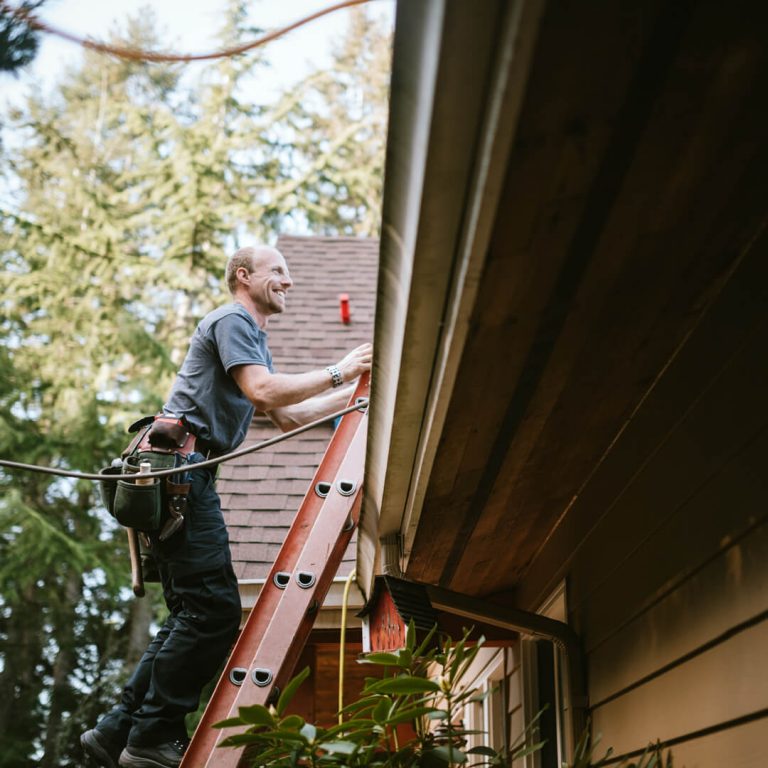Routine habits can make a big difference in your financial position. For example, sticking to a budget helps you live within your means, while framing that budget around certain rules ensures you’re setting aside money for your needs, wants and goals. Paying your bills on time and not maxing out your credit cards are smart ways to improve your credit score, which helps you to qualify for lower interest rates on mortgages or home equity lines of credit and also to lower the cost of your auto insurance.
Another habit that makes really good financial sense: Taking excellent care of your home—likely one of your most valuable assets—and doing the same for your vehicle and other possessions.
Well-maintained Homes and Possessions Pay Off in Multiple Ways
In addition to creating a more appealing and comfortable environment in which to live or more reliable transportation to get you where you need to go, there are tangible financial benefits to routinely taking good care of your home, car and other valuable possessions.
Maintains Their Resale Value
When you’re ready to sell your home, your car or even a piece of furniture, buyers are almost always willing to pay more for something that has been properly maintained and well cared for than an item that has not. Real estate appraisers also look at the overall condition of homes when assessing their value for the mortgage process. Signs of good home maintenance can positively impact their valuation, while worn conditions do the opposite. As for your car, sharing a record of thorough maintenance with potential buyers helps you justify a higher asking price.
Limits Your Repair Costs
Regularly changing your air filters helps keep your home’s HVAC system in good working order because it’s not being stressed by clogged dust and debris. You can typically buy a pack of air filters for $10 or less, as opposed to an HVAC repair, which can range anywhere from about $100 to over $2,000, or an even costlier replacement. For a couple of quarters, you can keep your vehicle’s tires properly inflated, which extends their life expectancy so you don’t have to replace them as quickly—an expense that can easily exceed $500 for a set of four. These are just a few examples that demonstrate how taking good care of your home and car’s structural foundation and systems can save you money in the long-run.
Curbs the Need or Desire for New Things
Routine car maintenance, such as changing its oil per the manufacturer’s recommendation, keeps it running smoothly so you don’t need to buy a new one. Likewise, keeping the interior and exterior clean makes it more comfortable and appealing to drive, which should help lower the urge to replace it with a newer model. Taking that same level of care with your major appliances, furniture, flooring, plumbing and lighting will extend their life, too, as well as curb your desire for replacements.
Lowers Your Stress Level
Having a well-kept home and vehicle and not worrying about unexpected repairs caused by haphazard maintenance leads to less financial stress in your life. In turn, lowering your stress helps limit mental and physical health issues so you can keep your medical expenses in check.
Tips for Taking Good Care of Your Home and Possessions
No matter whether you’re a new homeowner or homeownership veteran, following these tips can help you take excellent care of your home and other possessions:
- Schedule seasonal home maintenance: Getting your home ready for winter, spring, summer and autumn changes in weather and temperature limits the damage that seasonal elements and wear-and-tear can wreak on it.
- Follow the manufacturer’s recommended service schedule for your vehicle: Taking your car or truck in for service based on this schedule, which should be located in your owner’s manual, helps ensure your car runs smoothly for as long as possible.
- Routinely perform DIY car maintenance: Not all car care needs to be handled by a professional. It’s easy and inexpensive to do things like change your windshield wipers, air filters and burned-out light bulbs.
- Handle repairs as they happen: Of course, sometimes things break or conk out even in the best maintained homes and cars. Tackling the repair or replacement right away keeps an annoying issue from turning into a full-blown emergency.
- Build up a home and car maintenance and repair fund: Make this a line item in your budget so that you have the money you need to handle routine care and any necessary repairs. Putting that money in a separate bank account ensures you don’t spend it on other things.
- Consider a home warranty: Another way to handle unexpected repairs in your home is to invest in a home warranty. It typically covers the repair or replacement of things like major appliances, your HVAC system, and electrical and plumbing issues.
- Knowing what’s in your home: Once you have a detailed home inventory, it can be used as a guide to make sure you’re scheduling proper maintenance for everything in your home throughout the year.
Both your home, your vehicle and your bank account will thank you for making such routine maintenance a priority.
Editor’s note: Quorum is not affiliated with any of the companies mentioned in this article and derives no benefit from these businesses for placement in this article.






Comments Section
Please note: Comments are not monitored for member servicing inquiries and will not be published. If you have a question or comment about a Quorum product or account, please visit quorumfcu.org to submit a query with our Member Service Team. Thank you.